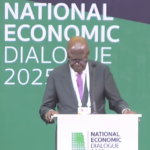In 1988, Taiwan faced a critical moment in its history when one of its senior nuclear engineers, Chang Hsein-yi, made the decision to expose the country’s secret nuclear weapons program to the United States. This revelation ultimately led to the shutdown of Taiwan’s almost-complete nuclear weapons program, much to the dismay of the country and its critics.
Taiwan had been on the brink of developing a nuclear weapon in response to growing tensions with China. The fear of being left vulnerable to a potential Chinese invasion prompted Taiwan’s leader, Chiang Kai-shek, to launch a covert program aimed at developing nuclear capabilities. The project, managed by the Defence Ministry and carried out by the Changshan Science Research Institute, focused on research and technical groundwork for nuclear weapon development.
Chang Hsein-yi, an army captain who had undergone advanced nuclear training, played a crucial role in the program. Despite Taiwan’s claims that the research was for peaceful purposes, Hsein-yi and other participants were well aware of the true goal – to acquire the knowledge needed to create nuclear weapons.
It was during his training in the United States that Hsein-yi first came into contact with the CIA. Initially hesitant, he eventually agreed to collaborate with the agency, providing valuable information about Taiwan’s nuclear ambitions. In 1988, after alerting the US about Taiwan’s plans, Hsein-yi and his family were exfiltrated from Taiwan, and the Taiwanese government was pressured into giving up its nuclear weapons program.
Despite being labeled a traitor by some in Taiwan, Hsein-yi stands by his decision, stating that he believed it was in the best interest of the Taiwanese people. Now 81 years old and living in Idaho, Hsein-yi maintains that developing nuclear weapons was unnecessary and that unity among all Chinese people should be the priority.
The story of Chang Hsein-yi’s role in exposing Taiwan’s nuclear weapons program highlights the complex geopolitical dynamics in the region and the ethical dilemmas faced by individuals caught in the midst of international conflicts. His actions may have prevented a potentially dangerous escalation in tensions between Taiwan and China, but they also sparked controversy and criticism within Taiwan itself.
As we reflect on this pivotal moment in history, it serves as a reminder of the power of individual choices and the impact they can have on the course of world events. Chang Hsein-yi’s story is a testament to the complexities of loyalty, duty, and morality in a world where the stakes are high and the consequences far-reaching.








